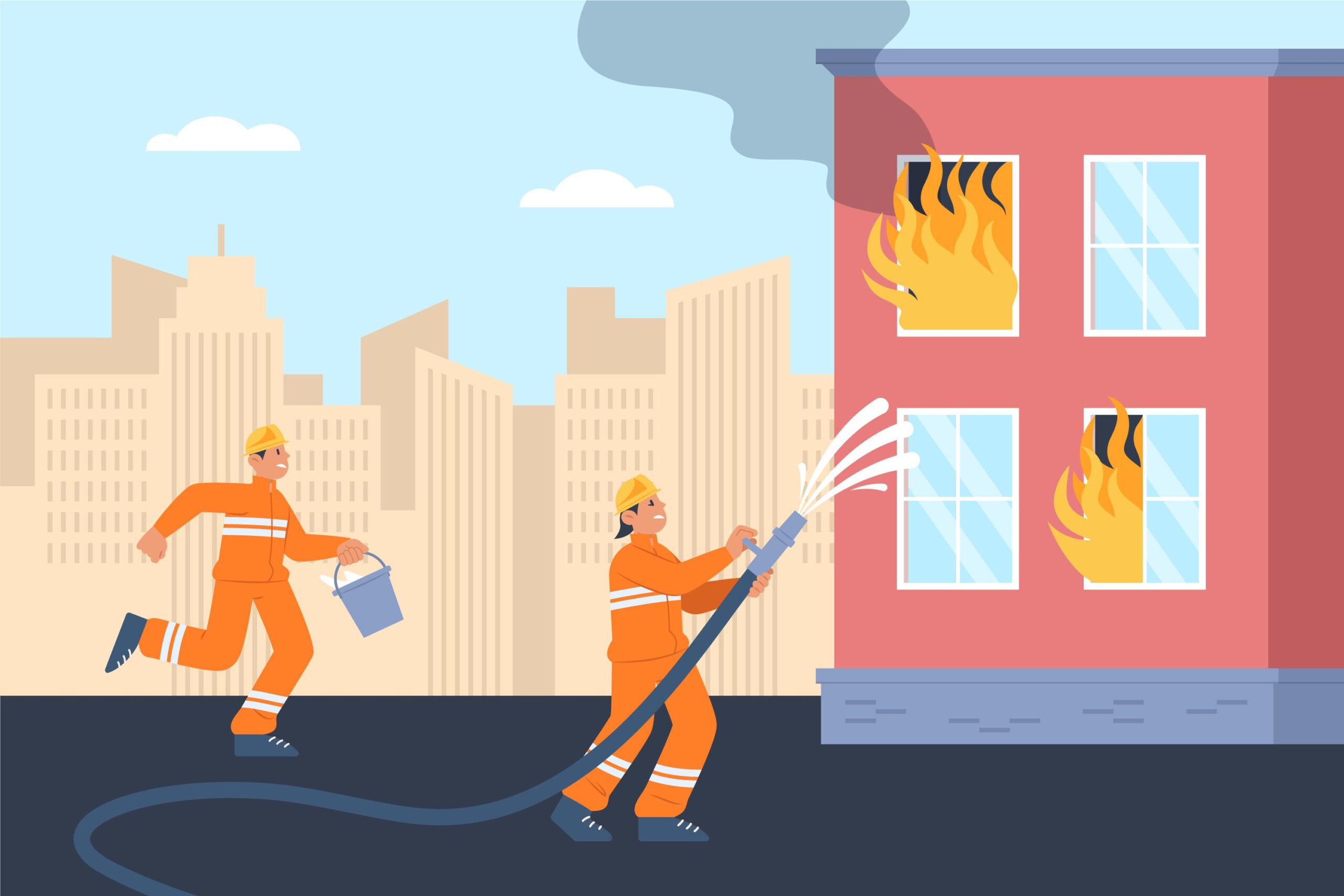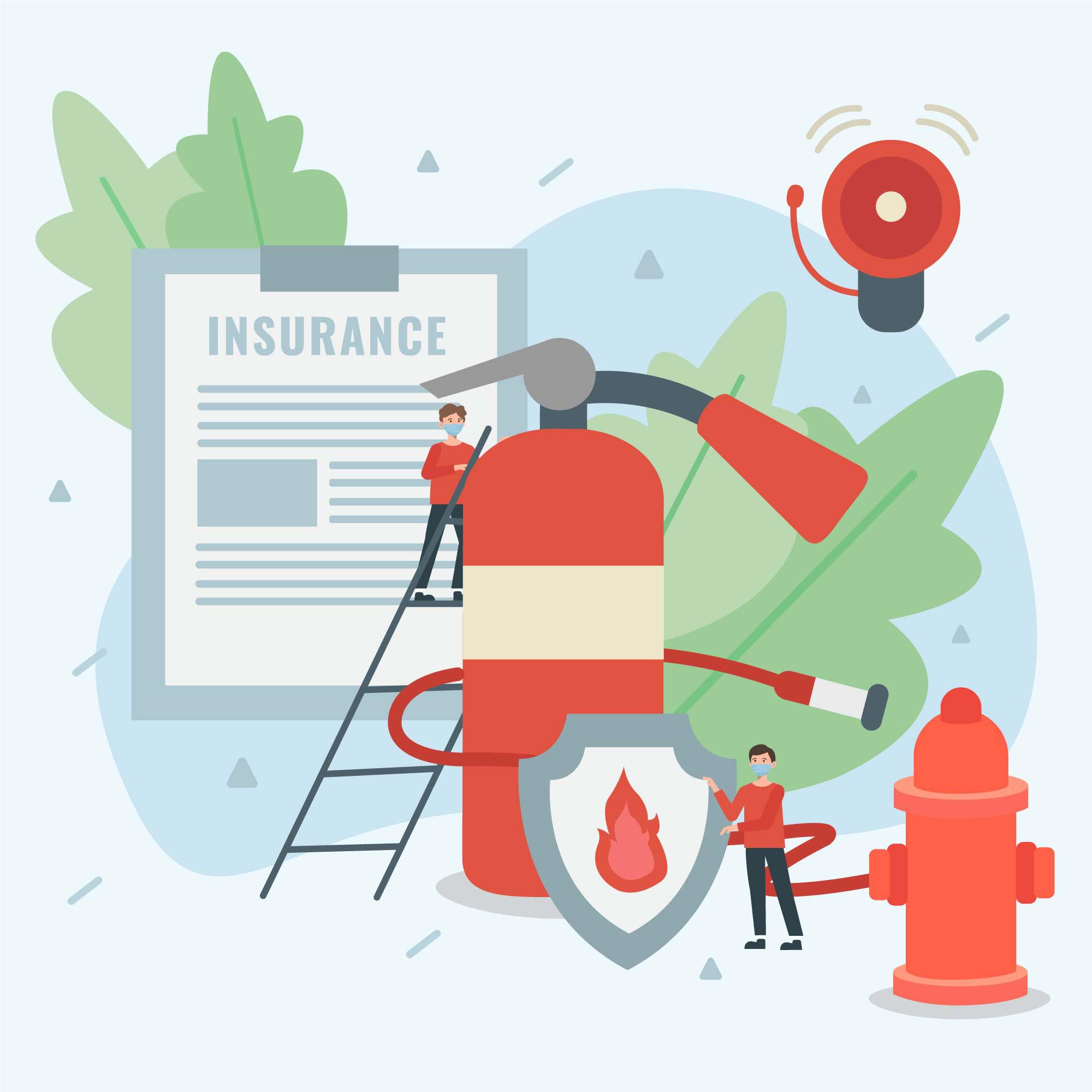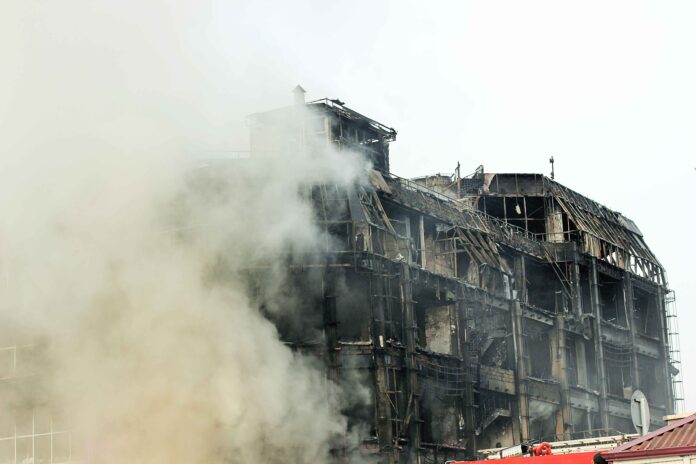1.Immediate Steps to Take After a Fire Incident at Home
After a fire incident, your first priority is ensuring the safety of everyone in your home. Once it’s safe to re-enter the premises, take the following steps:
- Ensure Safety First: Do not enter the property until the fire department has declared it clear. If someone has been injured, get medical help immediately.
- Secure Your Home: Take all necessary measures to board up windows, doors and any other parts of the building to minimize damage by weather or looters.
- Document the Scene: You should take still and video shots for everything within the area and all possessions that were damaged. Most if not all, of these will be necessary for your insurance claim.
- Keep Receipts: Keep all tickets and bills that were incurred due to the mitigation efforts and other expenses such as food and gas. These might be compensated as well under your policy.

2.Assessing the Damage: What to Look For
Properly assessing the damage is essential to receiving fair compensation. Here’s what you should focus on:
- Structural Damage: Check for any observable problems pertaining to the foundation, walls, and roof and ceilings of the building. Even without any visible damage, the flames can compromise structural integrity.
- Water and Smoke Damage: Since the firefighters extinguish the fire using water, check for water damage, the presence of mold, or even the smell of smoke which can be damaging to your house and even your property.
- Personal Property Loss: Make a description list of personal items that you have incurred damage or destruction. Your list can contain appliances, furniture, electronics, and other personal effects.
- Hidden Damage: Some type of fire damage include soot build up or problems with wiring which are impressed at first. It is advisable to seek a professional inspection so that nothing is missed out on.
3. Contacting Your Insurance Company: What to Expect
Once you’ve assessed the damage, it’s time to contact your insurance provider to initiate the claim process. Here’s what to expect:
- Initial Call: As soon as possible, the fire is to be reported to the insurance company. Provide them with basic information about the incident and the extent of the damage.
- Assigning a Claim Number: It is the obligation of the insurer to allocate a claim number that will be utilized in all future Correspondence.
- Sending an Adjuster: Most probably, the insurance firm will have an adjustor evaluation of the loss in person. They will determine whether the coverage applies, and they will provide an assessment on how much the company will compensate for the damage.
- Policy Review: The insurance company will discuss with you the details of your policy including the limits of the coverage and any applicable deductibles you will have to meet.

4. Filing an Insurance Claim: A Step-by-Step Guide
Filing an insurance claim after a fire is a crucial step toward financial recovery. Here’s how to navigate it smoothly:
- Step 1: Gather Documentation: All documentation associated with the fire damage such as photos, videos, and receipts for damaged items and temporary living expenses.
- Step 2: Fill Out Claim Forms: Your insurer will provide claim forms that you’ll need to fill out with detailed information about the damage and losses.
Claim forms that your insuror has issued to you have to be filled in having outlined the damaged property and the loss incurred.
- Step 3: Submit the Estimate: If you’ve received estimates from contractors for repairs, submit them to your insurer to support your claim.
- Step 4: Follow-Up: Maintain consistent communication with your insurer. If additional information or documentation is required, provide it promptly to avoid delays.
- Step 5: Claim Approval and Payment: Once your claim is approved, your insurer will issue a payout based on the agreed-upon compensation.
5. Dealing with Adjusters: Tips for Smooth Communication
Your insurance agent is going to have a big hand in how your own claim works out. Read the following tips for a smooth transition.
- Be Honest and Transparent: Openly describe the event and it’s consequence If you are not honest, he will use the opposing sides statements to deny your claim.
- Provide Detailed Documentation: Give the adjuster photos, videos and receipts that support your claim.
- Ask Questions: Don’t be afraid to ask the adjuster about any part of the claims process that you do not understand. If you go through this review then it will tell us about their assessment.
- Negotiate If Needed: If the adjuster is requesting an estimate a bit too low relative to past damage, be prepared to haggle. Either you can obtain contractor estimates or engage the services of public adjuster to represent your interest.
- Stay Professional: By keeping all communication respectful, you can help create a more amiable working relationship and that could ultimately prove helpful to your claim.
6. Repair and Recovery: How Insurance Can Help You Rebuild
After the fire and once the claim is settled, the focus shifts to rebuilding and recovering. Here’s how insurance can help:
- Structural Repairs: However, your policy generally provides coverage for the cost of fixing or building back to home to its pre-fire condition. Use qualified licensed contractors get the job done right.
- Replacement of Personal Belongings: You will also have the option to get a refund and replace personal property including furniture, appliances, clothing.
- Temporary Living Expenses: You should also be able to collect some temporary living expenses if the damage is bad enough that your home becomes unlivable.
- Long-Term Recovery: The impact of fire damage can often have long lingering damages that may go unnoticed when the initial repairs are completed. Insurance policies might include counseling services for assistance with the feelings following a fire.
Final Thoughts
The aftermath of a fire may be stressful yet understanding what must be done will help in recovery. Be safe first and foremost, record all of the damage before it is cleaned up or removed, then collaborate with your insurance company for an easy claims route. Know your policy, and stay ready to rebuild and move on. move forward quickly.

